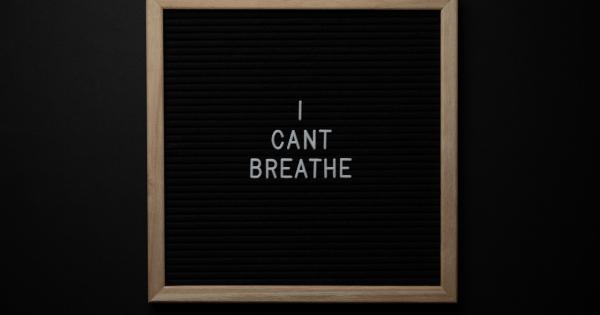Insecurity is a common and often deeply ingrained feeling that many people experience at some point in their lives. It can stem from a variety of factors, such as past experiences, low self-esteem, or external influences.
Regardless of its origin, insecurity can have a significant impact on an individual’s mental and emotional well-being. In this article, we will explore four common signs of insecurity and how they manifest in different aspects of life.
1. Social Withdrawal
One of the most prevalent signs of insecurity is social withdrawal. When an individual feels insecure, they may become reluctant to interact with others or participate in social activities. This behavior often stems from a fear of judgment or rejection.
Insecure individuals may avoid situations where they could be exposed to criticism or negative evaluations. They may prefer to isolate themselves rather than risk facing their insecurities in a social setting.
Social withdrawal can have detrimental effects on an individual’s personal and professional relationships. It can lead to feelings of loneliness, further reinforcing their insecurity.
Additionally, withdrawing from social interactions can hinder personal growth and limit opportunities for meaningful connections and experiences.
2. Constant Self-Doubt
Insecurity often manifests as a persistent self-doubt. Insecure individuals may constantly question their abilities, decisions, and worth. They may doubt their own competence or fear that others view them as inadequate.
This ongoing self-doubt can be paralyzing, preventing individuals from pursuing their goals and fulfilling their potential.
The constant self-doubt associated with insecurity can also lead to imposter syndrome, a phenomenon where individuals feel like frauds despite evidence of their abilities or accomplishments.
This can affect their performance at work or in other areas of life, as they may constantly second-guess themselves and underestimate their capabilities.
3. Excessive Need for Validation
An excessive need for validation is another telltale sign of insecurity. Insecure individuals often seek external approval and validation to compensate for their lack of self-confidence.
They may rely heavily on the opinions and feedback of others to validate their self-worth and make decisions.
This constant need for validation can be exhausting for both the insecure individual and those around them. It can strain relationships, as others may feel burdened by the constant reassurance and approval-seeking behavior.
Additionally, relying solely on external validation can create a cycle of dependency, as the individual’s self-esteem becomes contingent on others’ opinions.
4. Perfectionism
Insecurity often leads to perfectionistic tendencies. Insecure individuals may set excessively high standards for themselves, constantly striving for flawlessness in every aspect of their lives.
This relentless pursuit of perfection can be driven by a fear of failure or a desire to avoid criticism and judgment.
The pursuit of perfectionism can be physically and emotionally draining. It can lead to chronic stress, anxiety, and burnout.
Insecure individuals may become overwhelmed by the pressure they place on themselves, leading to a negative impact on their mental well-being and overall quality of life.
Recognizing and addressing insecurity is essential for personal growth and well-being.
If you identify with any of the signs discussed in this article, it may be beneficial to seek support from a trusted friend, family member, or mental health professional. Remember, everyone has insecurities, and taking steps to address them is a courageous act of self-care.




























